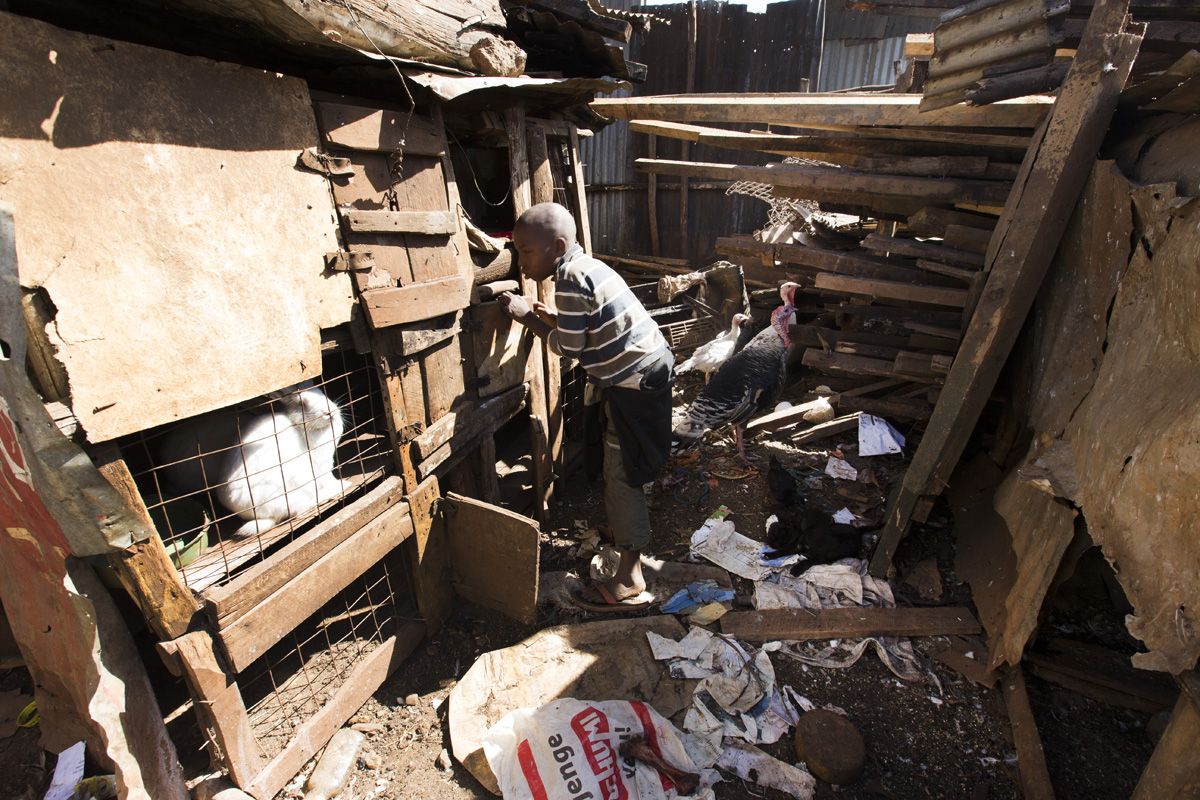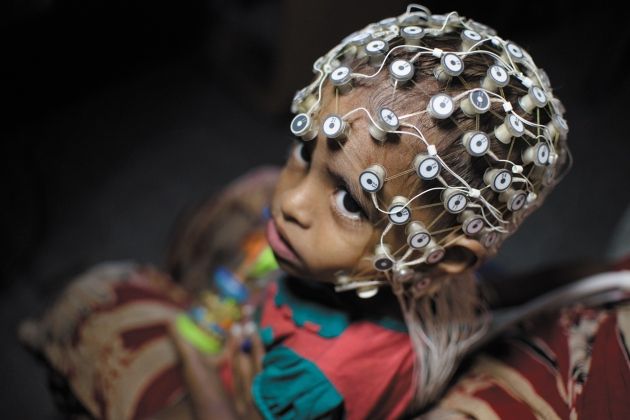Mark Johnson and Mark Hoffman
The Aedes aegypti has a short lifespan and a universe that extends for no more than a quarter of a mile, but in the age of jet travel and ever increasing mobility, the Zika virus that this mosquito carries can easily hop continents. In the latest installment of their fascinating series about how deadly microbes pass between animals and humans, grantees Mark Johnson and Mark Hoffman report from Miami and Nairobi. They talk to researchers and health experts about the paths a disease might follow and steps that can be taken to prevent or at least slow future outbreaks.
Nick Schifrin and Zach Fannin
The PBS NewsHour’s six-part series on Russia by grantees Nick Schifrin and Zach Fannin is—simply put—one of the most engrossing, chilling, and informed pieces of TV journalism that we’ve seen in a long while. You can view it here.
Carina Storrs
Children born into poverty—whether in rich countries or poor—suffer developmental deficiencies that hurt their chances of future success. Grantee Carina Storrs looks at new research that explains why.


